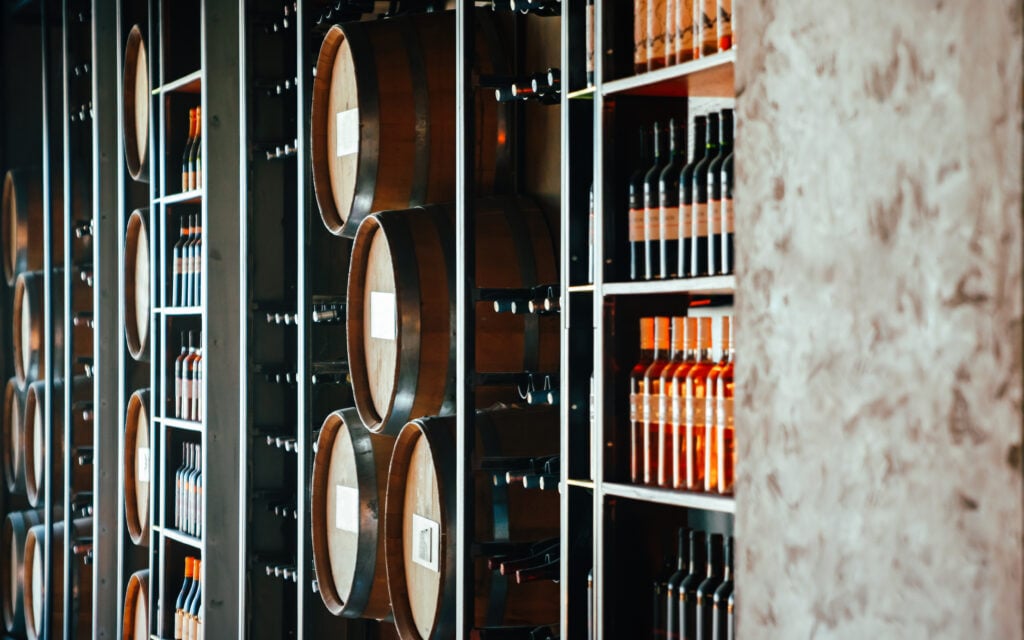Insuring Your Connecticut Vineyard
There is a lot of pride, preparation, and hard work that goes into every step of cultivating a product. As an owner of a winery or vineyard, you know firsthand how difficult and precise every aspect of your operation must be—everything from growing your product, to studying it, to managing and staffing your operations requires time and dedication. Given all of the time that you have invested into your business, it can be difficult to know where to start when it comes to insurance. The experienced team at Cross Insurance can help you explore various coverage options.
If you fit into one of the following categories, you may want to consider speaking with an insurance agent to discuss your insurance options:
- Wineries
- Vineyards
- Wine Tasting Rooms
- Wine Tours & Events
- Distilleries

Insurance Quotes for Your Connecticut Vineyard
Just as each barrel of your product is unique, so too are the costs and risks associated with insuring a winery or vineyard. There are a variety of factors that go into how much you could pay for insurance. Some of these include, but are not limited to:
- What types of policies and coverage limits you choose
- The types and amounts of products you make
- Where your business is located
- Whether you are open to the public
- Whether serving food is a part of your business plan
- Whether you have a tasting room where you serve wine to guests
- How many employees you have.
To get a picture of what it could cost to insure your business, you can fill out an online submission to request a quote from us. If you prefer to call someone to start the quoting process, you can find a list of phone numbers to all of our offices here.
Common Risks that Wineries and Vineyards May Face
Operating any business involves risk, and the vineyard and winery industries are no exception. The following are just some of the risks that wineries and vineyards may encounter:
- A guest is injured on your property
- Your equipment or product is damaged
- Your product is damaged in transit
- There is a wine spillage or leakage
- A product recall is needed
- Contamination occurs
- A fire, natural disaster, or extreme weather incident occurs
- Theft or vandalism

What Insurance Should a Vineyard Consider?
As a vineyard or winery, there are many factors and situations you should take into consideration when deciding what insurance coverages you may need. There are a few basic coverages most businesses should consider. They include, but are not limited to, the following.
Liquor Liability
When your business is centered on creating and selling alcohol, particularly if you have a tasting room or if you otherwise permit guests or patrons to sample your product at your vineyard, having liquor liability coverage is something that should be seriously considered. Liquor liability coverage can help provide your vineyard with coverage for claims of bodily injury or property damage for which it may become liable as a result of serving alcohol to an intoxicated customer. This type of policy may cover settlements, legal costs, and medical expenses. Having general and umbrella liability insurance is also a typically a very good idea.
Commercial Property
Whether you own the building your business operates in, lease your space, or have turned your home into your business, commercial property insurance can be a smart investment. The following are some of the assets commercial property can help insure:
- Your building
- Your vineyard’s furniture, such as barstools, chairs, and indoor/outdoor seating
- Your inventory being wine, your ingredients, and packaging
- The equipment that your vineyard runs on, like tractors, irrigation systems, tanks, barrels, and pressers etc.
- Outdoor signage, banners, and other materials
- Landscaping such as business entryways and parking
Product Recall and Product Liability
As a vineyard, one of the worst fears for your business is product contamination. With product recall coverage, you can help reduce the costs of taking your product off customers’ shelves due to an unforeseen contamination or packaging error. Some of the costs that recall insurance can help reduce the costs of are:
- Distribution costs
- Storage costs
- Disposal costs
- Replacement costs
Product liability coverage may also be available to help cover costs associated with customers who are injured as a result of ingesting a defective product.

Inland Marine
Inland Marine can provide financial protection for your business’s materials and products while they are being transported. This means equipment like cases, packaging, and bottles that are being transported may be covered during transit. As a vineyard your final product is important, so having an inland marine policy can help protect your investments.
Insurance for your Employees
A vineyard consists of many moving parts – from the multi-step creation process, to packaging, and the serving and distribution of your product, in many instances this takes more than one individual. Whether you’re a small vineyard with just one employee or you are a large operation with hundreds or even thousands of workers, having workers’ comp to help protect those employees may be legally required. Worker’s Comp can help cover medical bills for employees who are injured or become ill because of work related events. It can also help cover a portion of lost wages.
Cyber Insurance for Vineyards
As businesses become increasingly reliant on technology, possible data breaches are becoming more common. A data breach can do more than just damage your computer system- it can also result in fines and legal fees. Business owners should have plans in place for dealing with a cyber-attack. Consider talking to your local insurance agent about cyber insurance if:
- Your vineyard handles credit card numbers or processes electronic payments
- Your vineyard uses computers and mobile devices
- Your vineyard keeps financial data
Commercial Auto
If you distribute your product, commercial insurance should be on your list of coverages to consider. Cross provides coverage options for many types of vehicles used for commercial purposes.
Recap
In order to help protect the investment you have made into your business, you should be sure to have appropriate insurance coverage. Some common coverages for a vineyard include, but are not limited to, inland marine, general liability, commercial property, workers’ compensation, commercial auto, and cyber liability. You should connect with a local insurance agent to discuss the unique features of your business to see if you should consider additional coverages.
___________________________________________________________________
This article is for general informational purposes only and is not to be relied upon or used for any particular purpose. Cross Insurance shall not be held responsible in any way for, and specifically disclaims any liability arising out of or in any way connected to, reliance on or use of any of the information contained in this article. The information contained or referenced in this article is not intended to constitute and should not be considered legal, insurance, accounting or other professional advice, nor shall it serve as a substitute for the recipient obtaining such advice. The views expressed in this article are that of its author and do not necessarily represent the views of Cross Financial Corp. and its subsidiaries and affiliates (“Cross Insurance”) or Cross Insurance’s management or shareholders.
Request a Quote for Your Vineyard Today
More Resources

Insuring Your Connecticut Vineyard
Insuring Your Connecticut Vineyard There is a lot of pride, preparation, and hard work that goes into every step of cultivating a product. As an

Insurance for Glamping Resorts
Insurance for Glamping Resorts What is glamping? Glamping is short for “glamourous camping” and it refers to a form of elevated camping. Pods, tents, yurts,

Insurance for Event Venues
Insurance for Event Venues When it comes to events such as concerts, weddings, conferences, and other special functions, it is important to protect yourself and
The post Insuring Your Connecticut Vineyard appeared first on Cross Insurance.